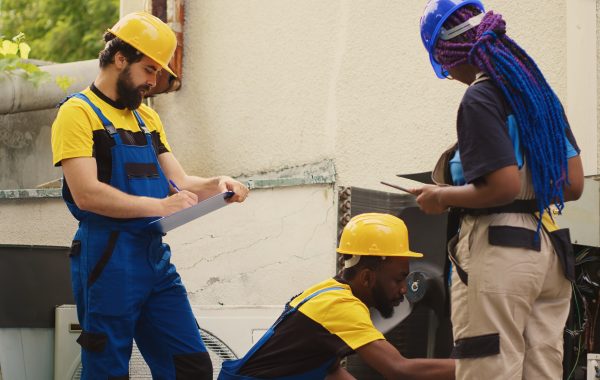
Understanding Lease Agreements in Ghana: A Complete Guide
Navigating the world of lease agreements can be daunting for both tenants and landlords in Ghana. As a crucial document governing the rental of a property, a lease agreement sets out the rights and obligations of all parties involved.
This comprehensive guide aims to shed light on the essential elements of lease agreements in Ghana, ensuring that you’re well-equipped to make informed decisions when renting or leasing a property.
Whether you’re a first-time tenant or an experienced landlord, understanding the intricacies of lease agreements is key to protecting your interests and fostering a harmonious landlord-tenant relationship.
The Basics of Lease Agreements
A lease agreement, also known as a rental agreement, is a legally binding contract between a landlord and a tenant. It outlines the terms and conditions under which the tenant is permitted to occupy the landlord’s property for a specified period, in exchange for regular rental payments.
In Ghana, lease agreements are governed by the Rent Act of 1963 (Act 220), which provides a framework for the rights and responsibilities of both landlords and tenants.
Key Elements of a Lease Agreement To ensure that your lease agreement is comprehensive and legally sound, it should include the following essential components:
- Parties Involved: The agreement must clearly identify the landlord (lessor) and the tenant (lessee), including their full names, contact information, and any other relevant details.
- Property Description: A detailed description of the leased property, including its address, size, condition, and any included amenities or furnishings.
- Lease Term: The duration of the lease, specifying the start and end dates of the tenancy. In Ghana, lease terms can range from short-term (e.g., 6 months) to long-term (e.g., 2 years or more).
- Rent and Payment Terms: The amount of rent payable, the due date, and the method of payment. This section should also outline any late payment fees or penalties.
- Security Deposit: The amount of the security deposit, its purpose, and the conditions under which it will be refunded at the end of the lease.
- Utilities and Maintenance: A clear breakdown of the responsibilities for utilities (e.g., electricity, water, gas) and maintenance, specifying which party is responsible for paying bills and addressing repairs.
- Occupancy Limits: The maximum number of people allowed to reside in the property and any restrictions on subletting or assignment of the lease.
- Alterations and Improvements: The extent to which the tenant is permitted to make changes or improvements to the property, and any requirements for obtaining the landlord’s consent.
- Termination and Renewal: The conditions under which either party may terminate the lease early, as well as any options for renewal at the end of the lease term.
- Dispute Resolution: The process for resolving disputes between the landlord and tenant, which may include mediation or legal action.
Common Lease Agreement Pitfalls to Avoid
To minimise the risk of misunderstandings or legal issues down the line, be aware of these common pitfalls when drafting or signing a lease agreement:
- Vague or Incomplete Terms: Ensure that all terms and conditions are clearly defined and that the agreement covers all necessary aspects of the tenancy.
- Illegal Clauses: Avoid including any clauses that contravene Ghanaian law, such as discriminatory provisions or unreasonable restrictions on the tenant’s rights.
- Verbal Agreements: Always insist on a written lease agreement to protect your interests and avoid relying on verbal promises that may be difficult to enforce.
- Failure to Read and Understand: Take the time to thoroughly read and understand the lease agreement before signing, and seek legal advice if necessary.
- Inadequate Documentation: Keep accurate records of all transactions and communications related to the lease, including rent payments, repair requests, and any changes to the agreement.
Terminating a Lease Agreement
In certain circumstances, either the landlord or tenant may wish to terminate the lease agreement before its scheduled end date. The Rent Act of 1963 provides guidelines for termination, which typically require written notice to be given within a specified timeframe. Valid reasons for early termination may include:
- Breach of the lease terms by either party
- The property becoming uninhabitable due to damage or disrepair
- The landlord requires the property for personal or family use
- The tenant’s inability to continue occupying the property due to job relocation or other extenuating circumstances
It’s essential to follow the proper legal procedures when terminating a lease to avoid potential disputes or financial penalties.
The Importance of Professional Assistance
Given the legal complexities involved in lease agreements, it’s advisable to seek the guidance of a qualified real estate professional or attorney when drafting, reviewing, or signing a lease. They can help ensure that the agreement is legally sound, fair to all parties, and tailored to your specific needs and circumstances. This is particularly important for high-value or long-term leases, where the stakes are higher.
Conclusion
A well-crafted lease agreement is the foundation of a successful and mutually beneficial landlord-tenant relationship. By understanding the key elements of lease agreements in Ghana and being aware of potential pitfalls, you can navigate the rental process with confidence and security. Remember, investing time and effort into getting your lease agreement right from the start can save you significant stress and expense in the long run.
FAQs
-
What is the typical lease term in Ghana?
Lease terms in Ghana can vary, but common durations include 6 months, 1 year, and 2 years. Long-term leases of 5 years or more are also possible for commercial properties.
-
Can a landlord increase the rent during the lease term?
In most cases, the rent is fixed for the duration of the lease term, unless the agreement includes a rent escalation clause. Any rent increases must be mutually agreed upon and specified in the lease agreement.
-
Who is responsible for maintenance and repairs?
The responsibility for maintenance and repairs should be clearly outlined in the lease agreement. Generally, landlords are responsible for structural repairs and maintaining common areas, while tenants are responsible for minor repairs and upkeep of the leased premises.
-
Can a tenant sublet the property to someone else?
Subletting is only permitted if the lease agreement allows it and the landlord gives written consent. Tenants who sublet without permission may be in breach of their lease and subject to penalties.
-
What happens if a tenant damages the property?
Tenants are liable for any damage they cause to the property beyond normal wear and tear. The cost of repairs may be deducted from the security deposit, or the tenant may be required to pay for the damages directly. In extreme cases, the landlord may have grounds to terminate the lease.
If you’re looking for a luxurious and secure living environment in Accra, look no further than Eden Heights. Our well-appointed apartments and world-class amenities provide the perfect setting for a comfortable and convenient lifestyle.
Contact our leasing office today to schedule a tour and learn more about our flexible lease options. Experience the best in modern living at Eden Heights.


